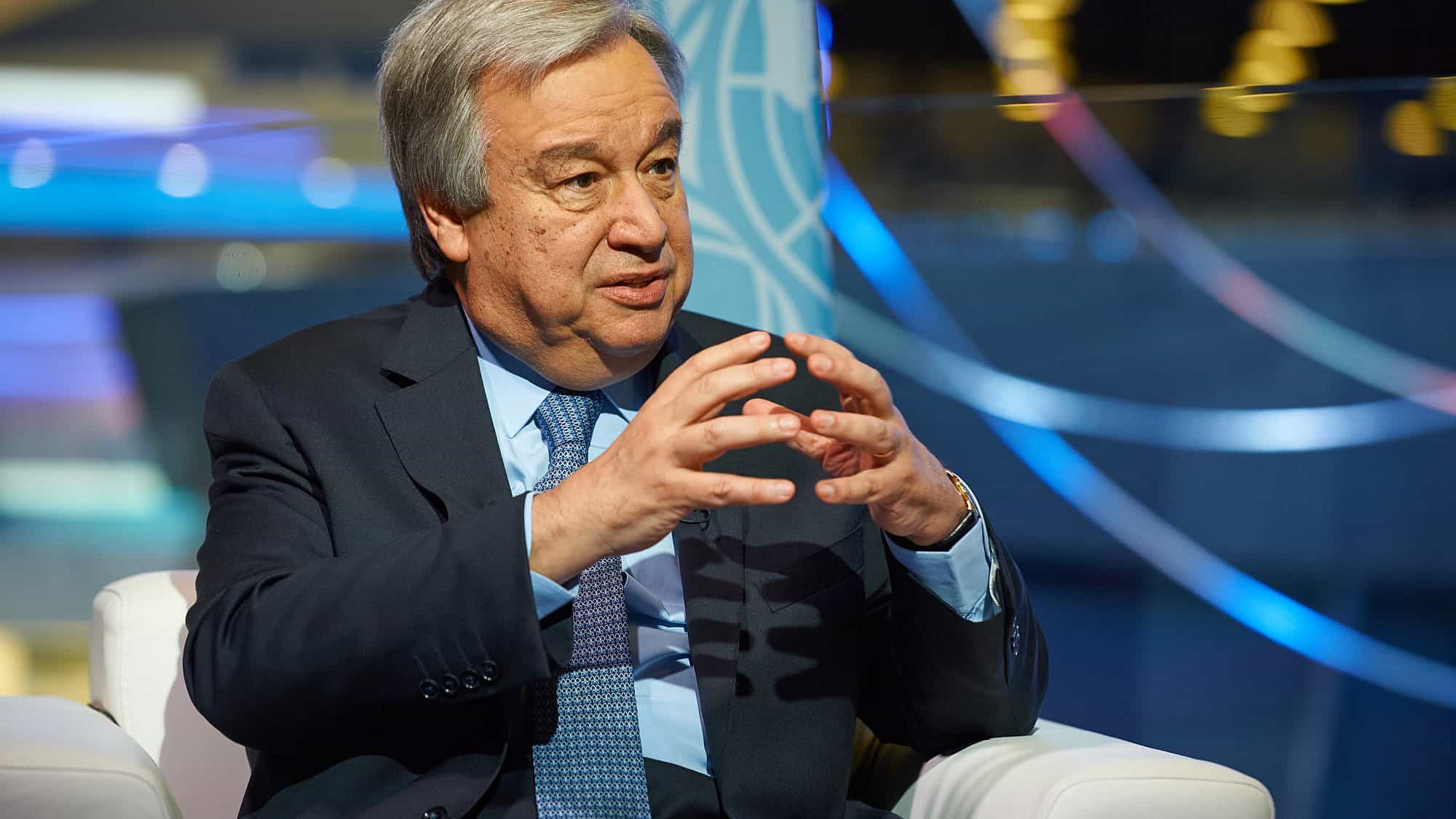ome 18 days before thousands of Hamas terrorists attacked Israel on Oct. 7, Israeli Prime Minister Benjamin Netanyahu “demanded” that António Guterres, secretary-general of the United Nations, “change the attitude of the organization’s institutions toward the State of Israel.”
Meeting with Guterres on the sidelines of the U.N. General Assembly in New York City, Netanyahu added “that it was untenable that while major changes for the better were taking place in the entire world and in the Middle East, that the U.N. was unaffected and remained steadfast in its hostility to Israel,” per an Israeli readout.
Despite the global body’s long, documented history of antisemitism, Jewish U.N. employees who spoke anonymously to JNS said that their religious identities were not an issue before Oct. 7. Since Hamas’s terror attack, the current U.N. employees said, the United Nations has become a very uncomfortable place for Jews to work.
A longtime U.N. staffer, who works in development and does not have a last name that would typically be considered Jewish, told JNS that “you forget your nationality” when you join the world body. “If my name was, I don’t know, Goldstein or Rosenberg, they would maybe be different,” the employee said.
“You work as civil servants, which means that you are not here to defend the interests of your country,” the staffer said. “It’s the same for religion. When you join, they will never ask you which religion you are. It’s completely, completely secular.”
The employee, whose close network at work is aware of the person’s Jewish faith and familial connections to Israel, estimates that 10 other Jews also work in that particular U.N. agency.
After the Hamas attacks, the United Nations issued “a lot of reminders” telling employees to avoid taking sides or making statements on social media amid conflict, “particularly the conflict in Gaza,” the staffer said. “We are supposed to follow the values of the U.N.”
The staffer subsequently noticed colleagues posting about the plight of Gazans on social media, including on X and LinkedIn, with nary a word about the Israeli victims.
“We are in a situation where we have to stay quiet. Not to say anything. Be good civil servants. And to listen to the propaganda that is completely organized and supported at the highest level by the U.N.,” the staffer said.
“I was thinking that at some point I should speak out. But it’s also very difficult. We risk our jobs,” the person said, adding that the United Nations “is being instrumentalized by Hamas” and that Guterres fell “into that trap of propaganda.”
Presented with some of what the Jewish U.N. staffers said, Anne Bayefsky, director of the Touro Institute on Human Rights and the Holocaust and president of Human Rights Voices, told JNS that the United Nations “is a cesspool of antisemitism.”
“The environment is incredibly hurtful, stressful and dangerous for any Jew or Israeli who cares deeply about the well-being of the state of Israel,” she added. “One can only imagine how difficult it is to actually work for such an organization and be dependent on its bureaucracy for one’s welfare.”
‘Right to be the victim’
The four Jewish U.N. employees who spoke to JNS described the U.N. environment for Jews as isolated, scary and typified by political advocacy gone off the rails after Oct. 7.
One of the four is an Israeli citizen, and the four all come from different countries and work at different agencies of the global body. JNS granted anonymity to all and is protecting their identities to avoid jeopardizing their employment.
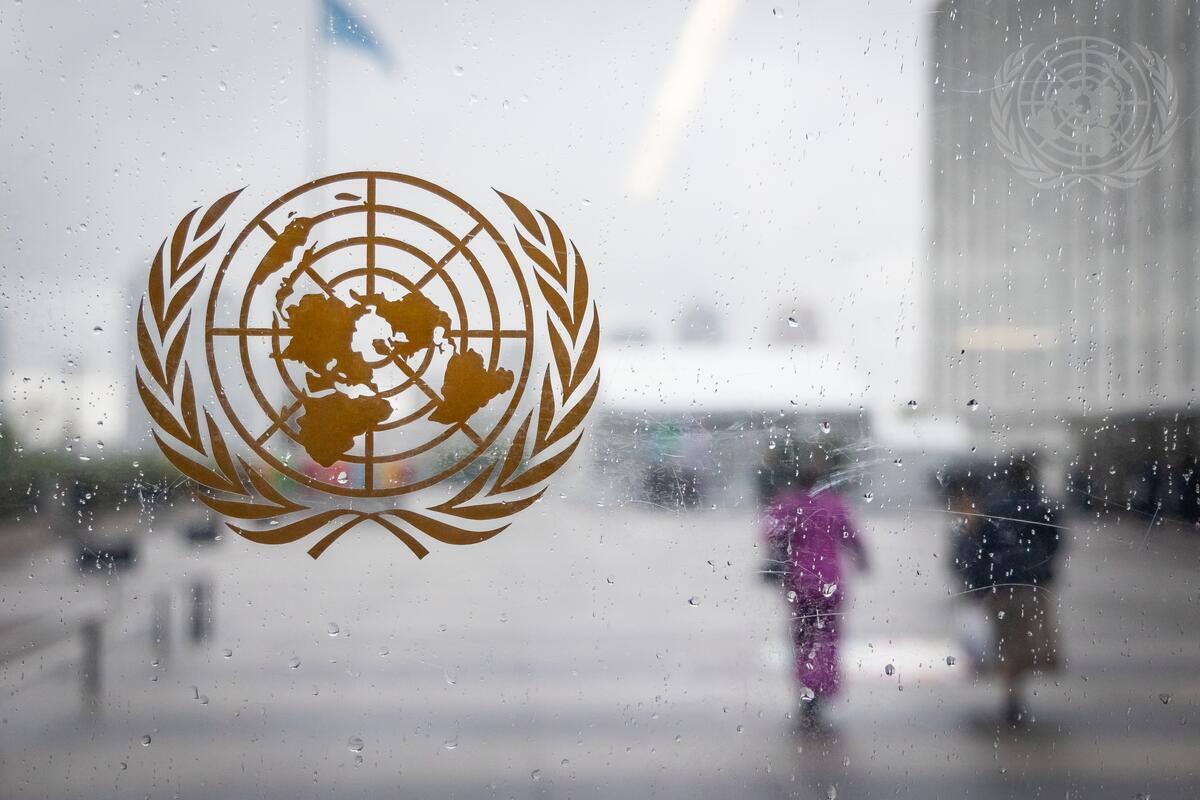
The Israeli is one of 164 working in the entire United Nations organization as of 2022, per official U.N. statistics. According to that data, 100 Israelis work at the United Nations; 14 at the U.N. High Commissioner for Refugees; seven each at the World Food Programme and the U.N. International Children’s Emergency Fund; and half a dozen or fewer at 16 other U.N. agencies. No Israelis were listed in 2022 as employees of the now-embattled U.N. Relief and Works Agency (UNRWA), which is currently under investigation for its staff’s ties to Hamas and other Palestinian terror groups.
The United Nations does not maintain employment statistics on the basis of religious identity. Of 1,065 staff within the U.N. secretariat at the end of 2021, there were 12 Israelis—below the “desirable range” of 13 to 22 that the United Nations sets as a baseline according to a country’s population and other factors. The 164 Israelis of 125,436 total U.N. employees in 2022 represented about 0.13% of the entire U.N. staff, which is about the same percentage that Israelis represent globally.
In separate conversations, the U.N. employees told JNS that their Jewish identities played no factor in their jobs—for better or worse—prior to Oct. 7.
Right after Hamas’s brutal assault, the first employee told JNS that close colleagues asked the staffer if the person’s family was OK. But the employee was struck by how few made such an effort.
“There are crises in many countries in the world as we speak,” said the employee, who would ask a colleague from Congo or Sudan if the colleague was OK.
“We, as Jewish staff, were completely shocked when we realized that there was a collection which was organized for the Palestinian victims,” the employee said. “This came quickly after Oct. 7,” even before Israel sought to eradicate Hamas from the Gaza Strip.
“They were already claiming their right to be the victim. The Palestinian propaganda took place quickly, even in the U.N.,” the employee said. “The U.N. in general actually quickly took the side of the Palestinians.”
‘Very uncomfortable’
“It wasn’t until the attack that I started feeling very uncomfortable” at work, a second U.N. employee, who worked in the U.N. secretariat, the administrative part of the global body, on and after Oct. 7 told JNS.
The staffer felt so uneasy that the person left that position in the secretariat and now works in another part of the international body, which this person has found to have lower levels of politicization.
The U.N. secretariat “is purposely trying to hide as much as possible Hamas’s responsibility for the terror attacks,” the employee said. “It started to be very disturbing.”
The employee cited misinformation shared in the secretariat, as well as a refusal to discuss Hamas as a terrorist organization as the person’s reason to switch jobs. “It just became kind of a system that I realized that it wasn’t me who was going to be able to change it,” the person said.
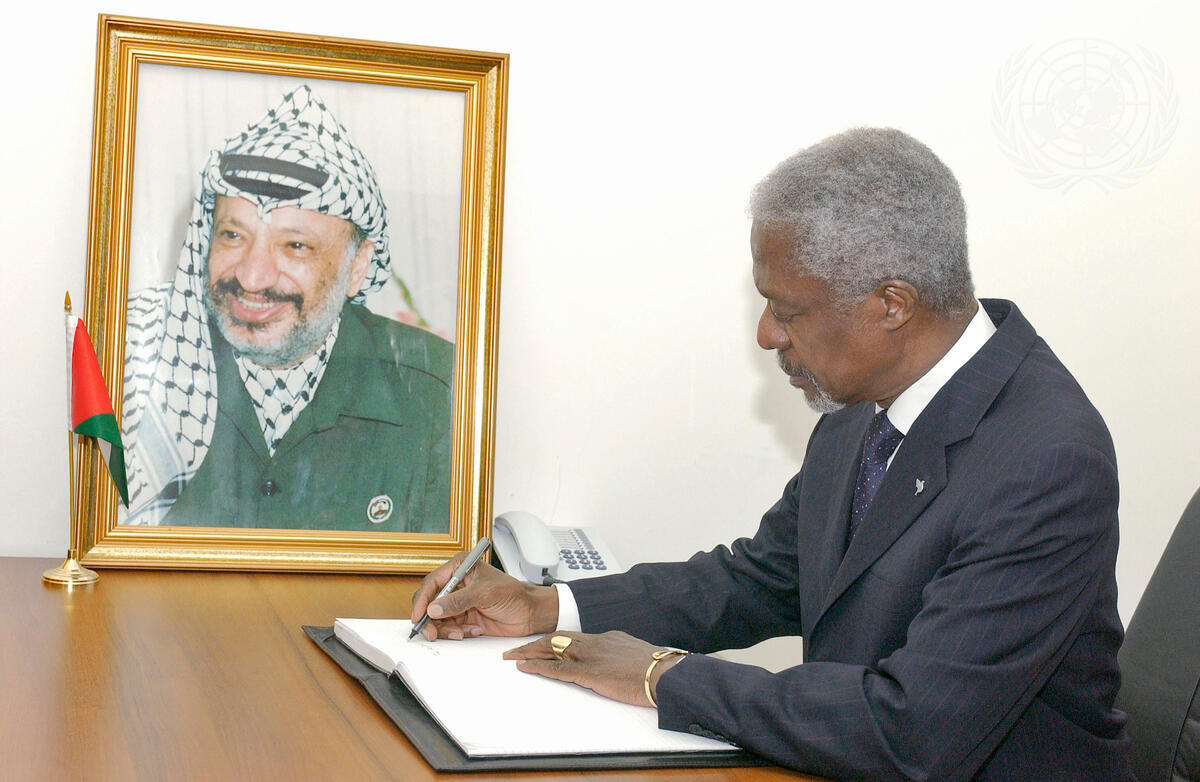
Biased ‘neutrality’
A manager at the United Nations told staff that no employee who had defended Israel would be invited to an event promoting U.N. work, under the guise, the second U.N. employee told JNS, of avoiding confrontations.
But there were many examples of people “standing up and yelling ‘Free Palestine’ or something similar in nature” at U.N. meetings and events, “with no push back from management,” the staffer said.
“Even this notion of neutrality is really a biased one because we need as civil servants to be neutral and impartial, but only when it comes to some topics,” the person said.
“I haven’t experienced any feeling of anti-Jewishness or antisemitism. I think the feeling is much more against Israel,” the person said. “But today, the two are becoming more and more difficult to separate, because we are in a moment where most Jewish people are united in support of Israel.”
A third Jewish U.N. employee, who works as a lawyer, told JNS that “the fact that I’m Jewish did not help me, but did not hinder me” pre-Oct. 7.
After Hamas’s attack, for reasons that “need no explanation,” the lawyer told JNS about being “more upfront” about the person’s Jewishness.
“It was only then that I started to hear from colleagues—not friends—convey the fact that they couldn’t care less about what happened on Oct. 7,” the lawyer said. “It was the first time in my life that I could see in front of me this reaction that there’s a story behind” the massacre.
The staffer noted that Guterres had said that “it is important to also recognize the attacks by Hamas did not happen in a vacuum.”
“From Oct. 7 until Israel started responding about a week later, everyone was like ‘Who knows? Who knows what happened? You know, those allegations,’” the U.N. lawyer said. “It set clear boundaries and a clear understanding of what people think about Israel and Jews.”
“We, as Jewish staff, were completely shocked when we realized that there was a collection which was organized for the Palestinian victims.”
U.N. employee
The lawyer lamented the erosion of long-established U.N. guardrails.
“We have a duty not to take part in anything that’s happening or anything that we’re working with. We work with all the countries, with all issues,” the U.N. lawyer said.
“It’s part of the contract that we signed that says we have a duty of neutrality,” the staffer added. “You would have thought that in this conflict, as with other conflicts, people would remain professional and would keep this neutrality. That did not happen. Many people crossed that boundary.”
Colleagues didn’t direct comments directly at their Jewish co-worker “because they know that I would have reacted,” the lawyer told JNS. “But you hear it in the corridors.”
“Never in my life have I heard anyone here be outspoken about any other conflict,” the lawyer added. “Every day, we hear complaints or about violations of human rights by countries, but no one is outspoken or takes sides because we work with everyone. There was an exception here.”
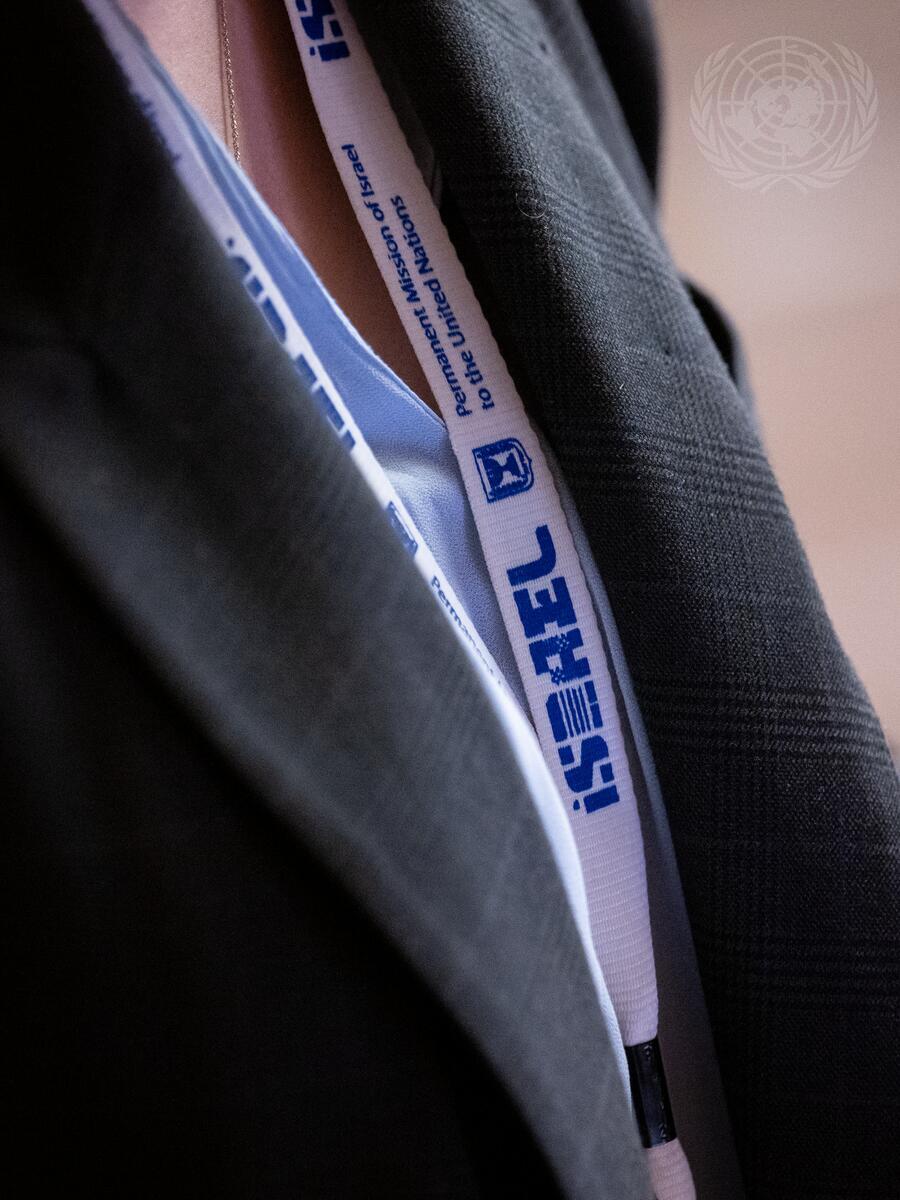
‘Complete silence’
The U.N. lawyer is unaware of United Nations staffers asking co-workers with family in Israel how the latter was doing immediately after Oct. 7. “On the contrary, there was complete silence,” the staffer told JNS.
Both the lawyer and the former employee of the secretariat, who now works elsewhere within the United Nations, told JNS that staff associations at some U.N. agencies drafted letters to Guterres expressing support for his actions and demanding a ceasefire. Some asked colleagues to sign their names on the letters, which means that the organizations have a list of who signed and who did not. (Staff associations function somewhat like unions and advocate for the rights and interests of personnel.)
“There’s not a single Jew or Israeli that I know that works for the U.N. that didn’t think, ‘Oh my God, where am I working? What are the values of the organization?’” the lawyer told JNS.
“We know that the U.N. is political, but we also knew that until now, the staff has remained outside of that because it’s our duty,” the staffer said. “But everyone broke that code.”
When South Africa brought the case accusing Israel of genocide before the International Court of Justice—the principal judicial U.N. arm based in The Hague—colleagues treated the case as must-see television, the U.N. lawyer said.
“Everyone on my floor said, ‘I have to stop. No, no. I cannot meet. I need to follow the ICJ,’” the employee said. “I’m like, ‘Did you know that last year, Ukraine also brought Russia to the ICJ? Did you know what the ICJ decided on that?”
“No one followed anything else but this process,” the lawyer said. “You start to wonder, how is that possible?”
A fourth Jewish employee who spoke to JNS described similar experiences. “The rule of the U.N. that you can’t express your political views has gone out the window,” the fourth employee said. “I don’t see anybody not expressing their political opinion.”
The staffer, who declined to have any details published about the person, including job description, agency or specific experiences for fear of retribution, said there is trepidation about identifying as Jewish at the United Nations.
“Lots of people are hiding the fact that they’re Jewish,” the employee said. “They’re not saying they’re Jewish out of fear.”
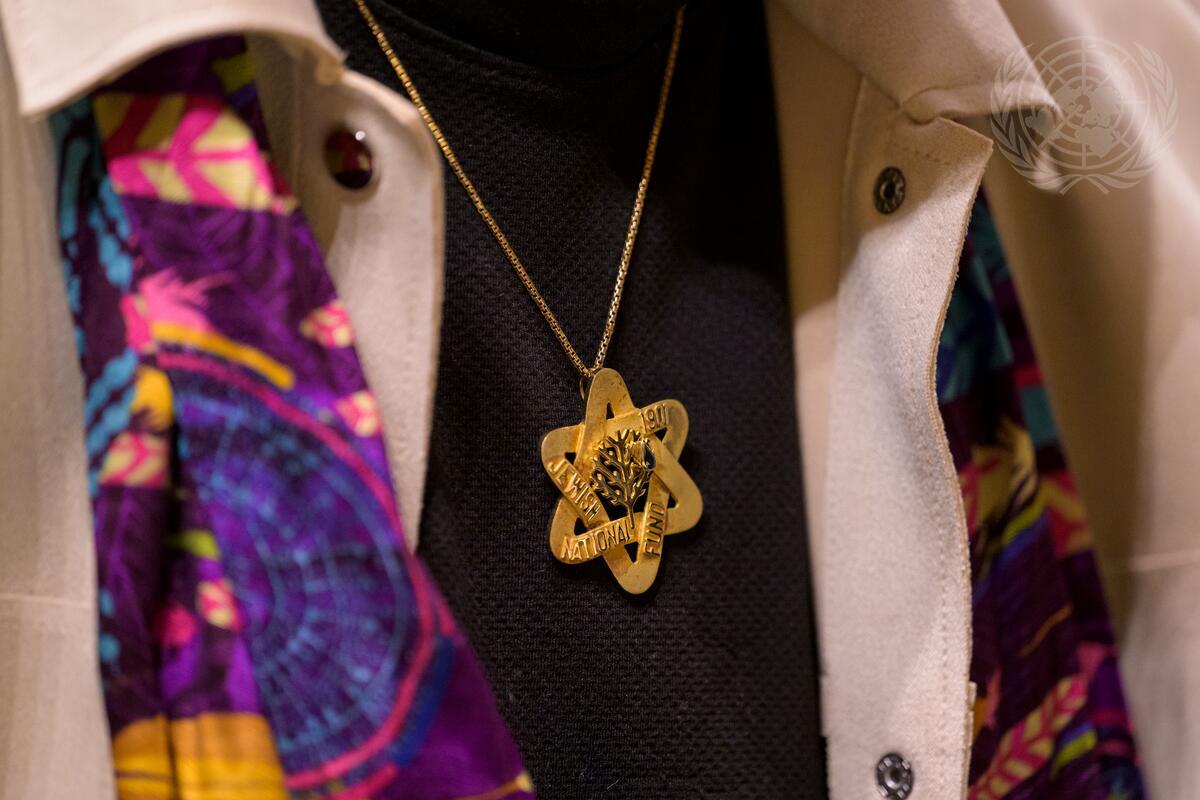
The employee told JNS that some Jews have left the United Nations due to it being “unbearable,” though some Jewish staffers remain because “it’s better to stay and influence. That is the consensus—to make sure that your voice is heard, and that you influence and change things from the inside, rather than giving up on it and leaving.”
Meirav Eilon Shahar, the Israeli ambassador to the United Nations and international organizations in Geneva, told JNS in a statement: “Since Oct. 7, it has become clear that the United Nations and international organizations have not only failed the State of Israel but also failed their own Israeli and Jewish employees.”
“For too many of them, their place of work has become a place of fear, isolation and discomfort, where all rules of impartiality and restraints have been disregarded,” the ambassador told JNS.
“Lots of people are hiding the fact that they’re Jewish. They’re not saying they’re Jewish out of fear.”
U.N. employee
She called “on the heads of the United Nations and all specialized agencies to act for the well-being and respect of all their staff, irrespective of their origin, faith, culture or background—or else these organizations will cease to embody the universal values they are meant to uphold.”
Hillel Neuer, executive director of UN Watch, told JNS that he has “been alarmed to hear from several U.N. employees who are Jewish, and employees from other international organizations, who have been subjected to a hostile work environment since Oct. 7.”
Since Hamas’s attack, “existing rules about U.N. employees pronouncing themselves on political matters have been trampled in the name of condemning Israel,” Neuer said.
U.N. officials “who’ve taken an oath to observe a code of conduct” in limiting political speech have been “in gross violation,” he told JNS. “It seems like the U.N. doesn’t care.”
“I sympathize with the Jewish employees at the U.N.,” Neuer added. “There aren’t many of them to be sure, because the U.N. has for many years not been an attractive place for Jews. But it’s only gotten worse.”
“It’s time for U.N. leaders to step up to the plate and condemn abuse of U.N. principles and defend the rights of all their employees,” he said.
JNS asked Guterres’s office to make Jewish U.N. employees available for an interview for this article on the record, but the office declined.
“The secretary-general has worked hard to foster an environment in which every staff member, regardless of religion, nationality or gender, feels included and protected,” the secretary-general’s office told JNS in a statement. “As someone who has been an unwavering voice against antisemitism throughout his life, he is concerned that some Jewish colleagues are feeling isolated or unheard due to the current conflict in the Middle East.”
“The secretary-general will not tolerate any actions or statements by staff members that violate the organization’s internal rules concerning the use of social media or violate their responsibilities as civil servants,” Guterres’s office added.


























